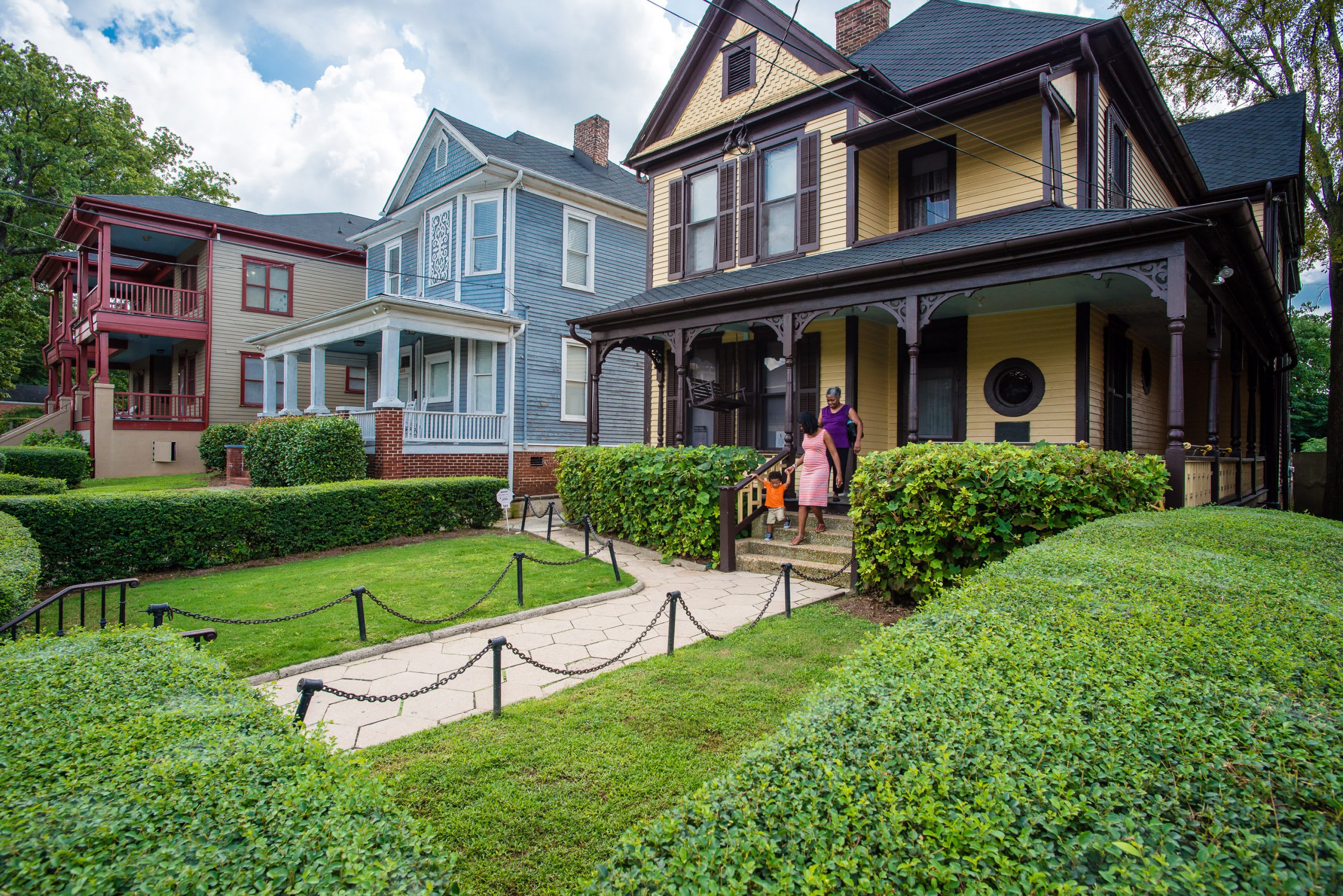Civil Rights Legacy
Explore Atlanta’s role in the Civil Rights movement
Where the Civil Rights Movement Was Built
In the early 1960s, Atlanta became the cultural catalyst for the Civil Rights Movement where Dr. Martin Luther King, Jr., John Lewis and many more civil rights leaders grew the movement nationally.
While civil rights efforts predate the city’s involvement, activists quickly found their spiritual center within Atlanta’s Sweet Auburn district, making it home to much of civil rights history. Segregation, perseverance and achievement led to affluent African-Americans building businesses and homes on Auburn Avenue, once dubbed as the “richest Negro street in the world.” Others moved to Cascade Heights, literally breaking down walls to become one of the city’s richest neighborhoods for Blacks.
Atlanta’s civil rights legacy lives on in areas such as Cascade Heights and Southwest Atlanta, Sweet Auburn and Atlanta’s Eastside and throughout the city. Visit Black-owned businesses, shops and restaurants in these dynamic neighborhoods. And because many restaurants from the civil rights era served as the meeting grounds for organizers, they are an important part of the movement and a great way to experience a taste of history today.
The city of Atlanta is the embodiment of Southern hospitality, sophistication and progress. Atlanta’s progressive character combined with its civil rights legacy creates a city determined to honor the past as it builds the future. As former activist and UN Ambassador Andrew Young said, “You almost cannot escape an education in American history and in particularly, Southern civil rights history. It’s everywhere you go.”

Civil Rights Landmarks
Discover Atlanta’s rich history directly by exploring historic sites, landmarks and museums including the top-rated National Center for Civil and Human Rights.
National Center for Civil and Human Rights
At the National Center for Civil and Human Rights you’ll find Freedom Riders wall, original writings of Martin Luther King Jr. and the wall of martyrs – photos of people who were killed during the civil rights movement. Sit at a mock lunch counter and, as civil rights protesters did, try to remain calm as insults are hurled at you. Be mesmerized by a panorama of the March on Washington.
Martin Luther King, Jr. National Historical Park
Visit the birthplace of civil rights leader Martin Luther King Jr. at the Martin Luther King, Jr. National Historical Park. Explore influential African-American churches such as the Ebenezer Baptist Church where Dr. King, his father and grandfather all preached. No longer used for Sunday services (those are reserved for the new Ebenezer Church just across the street), it’s open for self-guided tours. Sit in a pew and feel history envelop you as you listen to recorded sermons by Dr. King.
Next door, find the tombs of both Dr. King and his wife, Coretta Scott King, and the eternal flame that symbolizes Dr. King’s hope for justice, peace and equality. Inside Freedom Hall, see a draft of his Nobel Prize acceptance speech and his key to room 307 at the Lorraine Hotel in Memphis where he was assassinated.
Stroll along the International Civil Rights Walk of Fame and stand in the footprints of civil rights leaders like former U.N. Ambassador and Atlanta Mayor Andrew Young, congressman John Lewis, activist Hosea Williams, activist Rosa Parks, former president of the Southern Christian Leadership Conference Joseph Lowery and Atlanta Constitution editor Ralph McGill.
Jimmy Carter Presidential Library and Museum
Culminate your civil rights tour at the Jimmy Carter Presidential Library and Museum, where you’ll find artifacts from his presidency and exhibitions on how former President Carter and former First Lady Rosalynn Carter continue working for the civil and human rights of people around the globe.
Historically Black Colleges and Universities
Historically Black Colleges and Universities at Atlanta University Center include Morehouse College, Spelman College and Clark Atlanta University where many leaders and organizers laid the foundation for this movement that changed the nation.
Take a tour or DIY with a self-guided civil rights itinerary for a full experience.

Events Celebrating Civil Rights and Black History
Annual events and things to do during the Martin Luther King, Jr. holiday and Black History Month commemorate the achievements of African-Americans throughout history and celebrate cultural events today.
Discover More
Get to know Atlanta, and discover the best things to do around the city.